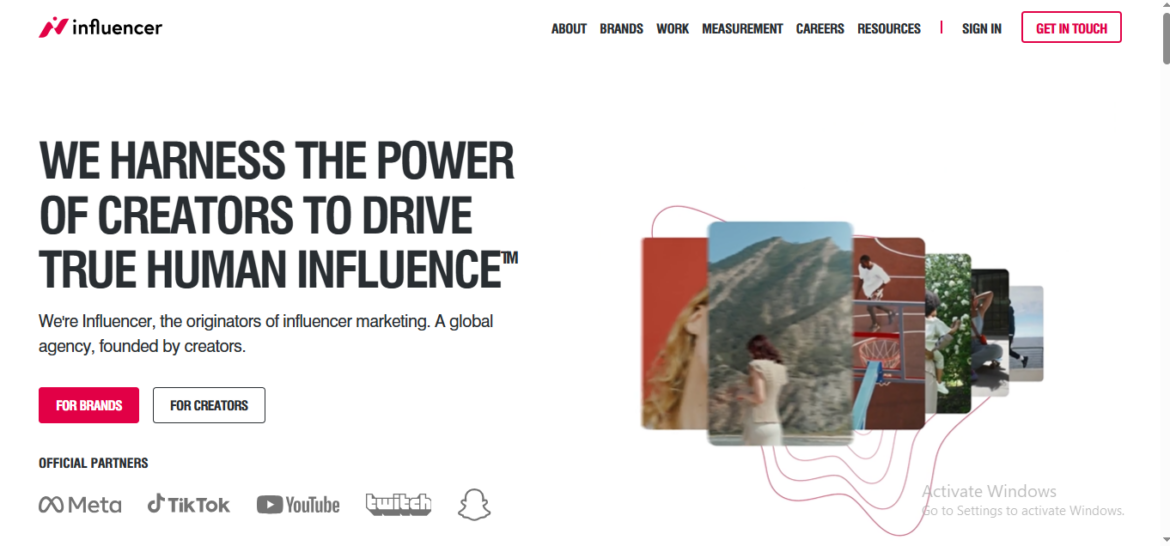Yo! If you’re looking for killer influencer marketing platforms for 2025, you’ve come to the right place. I’ve spent some serious time exploring these platforms to help you find the best ones for your brand. Whether you’re a small biz or a big-name player, there’s something for everyone here. Let’s dive in and check out these platforms in all their glory—complete with pros, cons, features, pricing, and my personal take. Grab a coffee and let’s get this influencer marketing journey started!
1. Mavrck
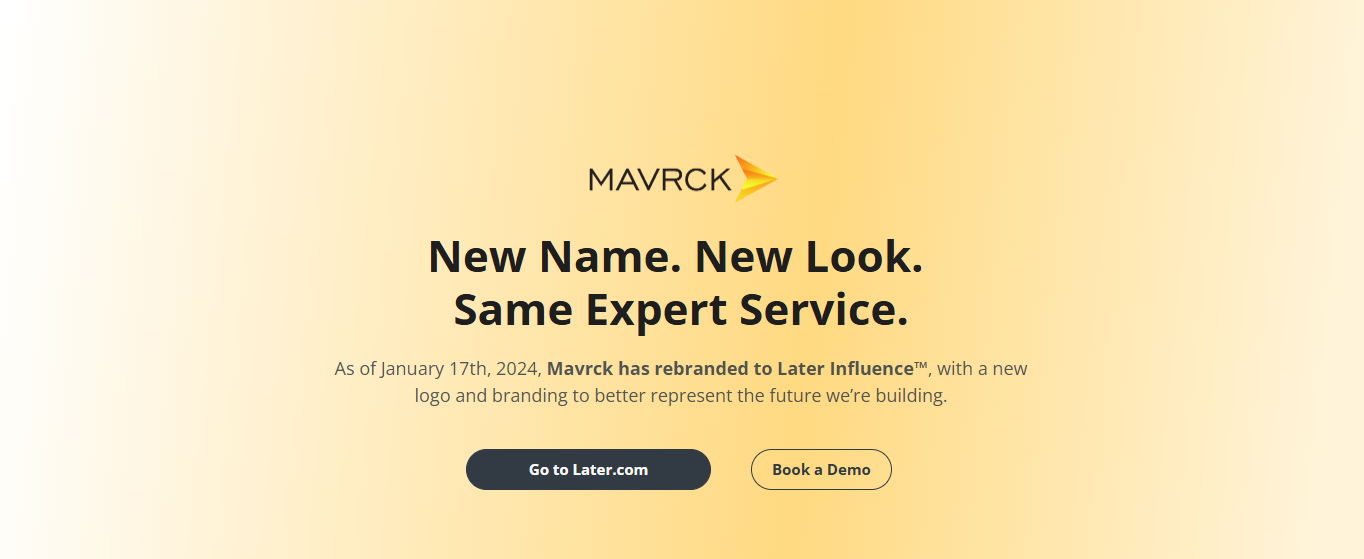
Overview:
Mavrck is one of the top influencer marketing platforms, especially for brands that want to scale their campaigns without breaking the bank. It’s all about streamlining the process, from influencer discovery to performance tracking. Think of it as your go-to influencer manager!
Pros:
-
Huge influencer database: Like, they have over 6M influencers on the platform, so you’re bound to find someone who fits your brand vibe.
-
Customizable campaigns: Whether it’s a one-time post or long-term ambassador relationships, Mavrck’s got you covered.
-
Advanced reporting: You get super detailed insights on campaign performance.
Cons:
-
Pricey for small brands: The pricing isn’t cheap, especially if you’re just starting out. But hey, you get what you pay for, right?
-
Learning curve: The platform can feel a little overwhelming at first, but once you get the hang of it, it’s smooth sailing.
Best for:
Mid to large brands that want a comprehensive and flexible influencer marketing tool.
2. The Influencer Room

Overview:
The Influencer Room is all about providing personalized services, with a focus on creating authentic influencer campaigns. It’s a bit like having your own influencer manager in the digital space.
Pros:
-
Personalized service: You get a dedicated team to help you strategize and execute campaigns.
-
Influencer vetting: They do a great job of making sure influencers align with your brand values.
Cons:
-
Small influencer pool: Compared to giants like Mavrck, their influencer database is smaller, so you might have to dig a bit more to find the right fit.
-
Pricing transparency: The pricing details aren’t readily available, which might be a turn-off for some.
Best for:
Brands that want a more hands-on, personalized experience.
3. Grin
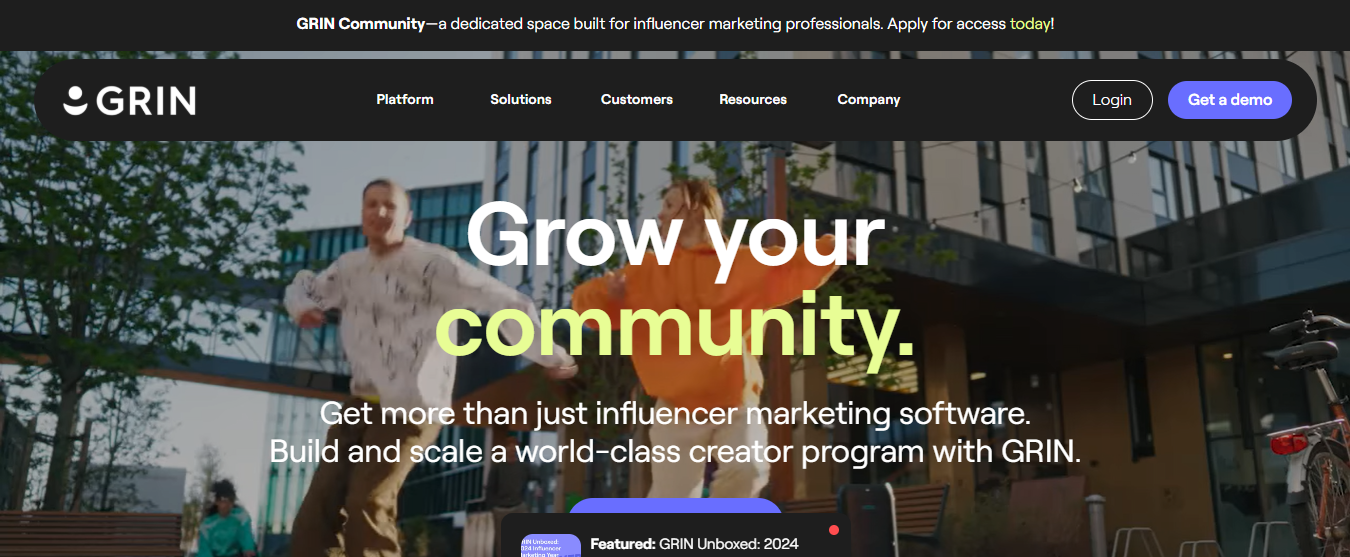
Overview:
Grin is one of the best platforms out there for e-commerce brands that want to build long-term influencer relationships. It’s like a one-stop-shop for everything influencer marketing, from outreach to reporting.
Pros:
-
E-commerce integrations: If you’re running an online store, Grin integrates with Shopify and other e-commerce platforms, making it super easy to track sales and ROI from influencer campaigns.
-
Easy-to-use dashboard: The interface is sleek and intuitive, so you won’t need to be a tech wizard to get started.
Cons:
-
Expensive: It’s on the pricier side, especially for small brands or influencers who are just starting out.
-
Limited support for non-e-commerce brands: If you’re not an e-commerce brand, you might not get as much value out of it.
Best for:
E-commerce brands looking for a seamless influencer marketing experience.
4. Influencity

Overview:
Influencity is a data-driven platform designed to help you discover influencers, track performance, and optimize your campaigns. They focus a lot on analytics, which is perfect for marketers who love data.
Pros:
-
Data-centric: Provides super detailed insights into influencer performance and campaign success.
-
Customizable reports: You can create and export custom reports for all your campaigns.
Cons:
-
Overwhelming for beginners: The platform’s so data-heavy that it might feel like a bit much if you’re just starting with influencer marketing.
-
Limited influencer database: Compared to others, their influencer pool is smaller.
Best for:
Brands and agencies that love numbers and want detailed performance tracking.
5. Hashtag Paid
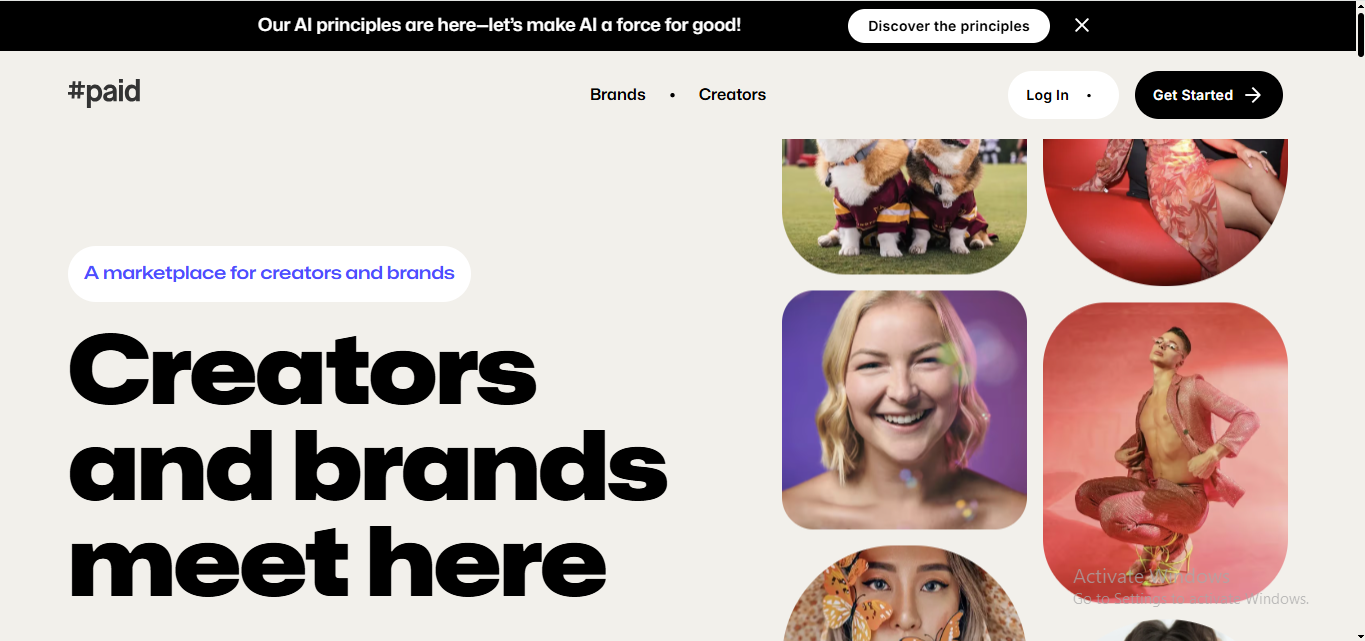
Overview:
Hashtag Paid lets brands and creators work together for campaigns that feel more like collaborations than just ads. The platform focuses on creating partnerships rather than one-off promotions.
Pros:
-
Authentic partnerships: Focuses on long-term collaborations rather than quick-fix campaigns.
-
Great for micro-influencers: If you’re into micro-influencers, Hashtag Paid has a lot of options for that.
Cons:
-
Small influencer pool: You might not find influencers from every niche, which could limit your options.
-
Not the best for large-scale campaigns: If you’re looking to run a massive influencer campaign, this might not be your best bet.
Best for:
Brands that want to work with micro-influencers and build long-lasting relationships.
6. Lolly
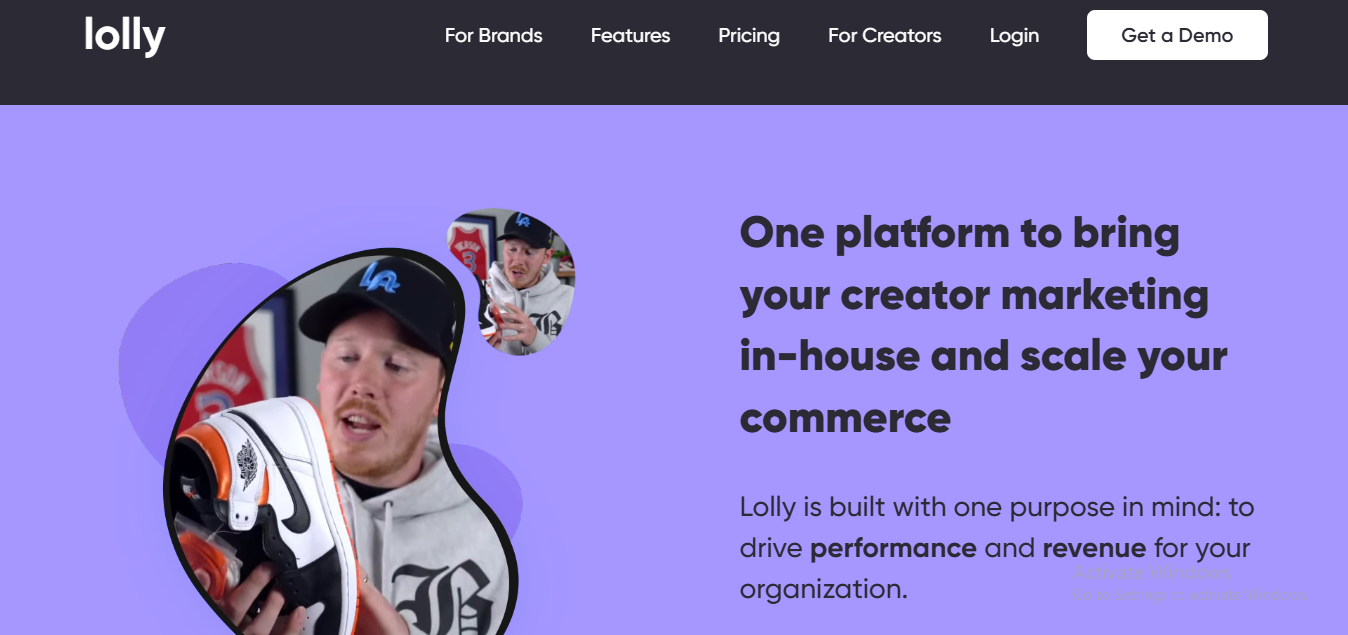
Overview:
Lolly’s all about helping you create social media campaigns with influencers that align with your brand’s values. It’s perfect for building a community around your brand through social content.
Pros:
-
Great for building brand communities: You can find influencers who truly resonate with your brand and help build a loyal following.
-
User-friendly interface: Super simple to use, even if you’re not a tech pro.
Cons:
-
Limited influencer discovery tools: You don’t get as many filters or advanced search features as some other platforms.
-
Pricing is unclear: They don’t have transparent pricing, which could be frustrating if you’re trying to stick to a budget.
Best for:
Brands looking to create a community of passionate followers through influencer partnerships.
7. The Cirqle
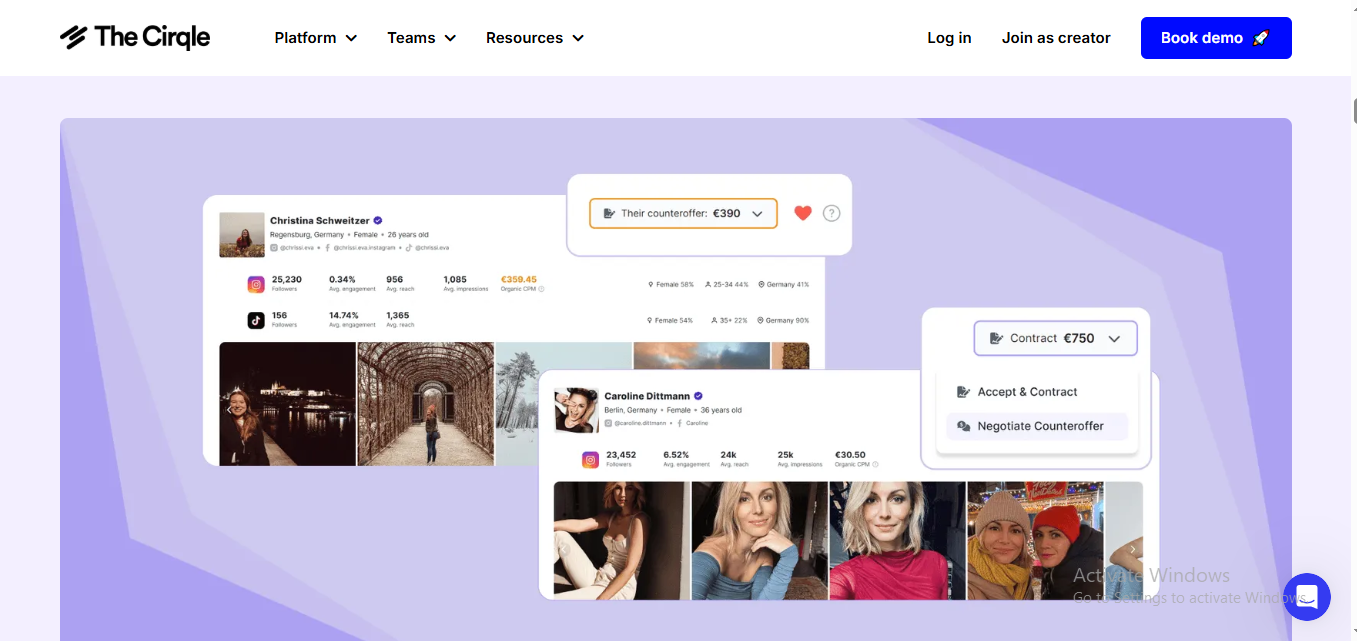
Overview:
The Cirqle is an influencer marketing platform that focuses on creating real connections between brands and influencers. It’s all about authenticity and working with influencers who genuinely align with your brand.
Pros:
-
Focus on authenticity: They emphasize genuine influencer-brand relationships.
-
Streamlined campaign management: You can track campaigns, monitor influencer activities, and optimize strategies with ease.
Cons:
-
Not ideal for large-scale campaigns: The platform is better suited for small to mid-level campaigns.
-
Smaller influencer network: You might not find every type of influencer on the platform.
Best for:
Brands that prioritize authenticity and want to run smaller, highly-targeted campaigns.
8. Popular Pays

Overview:
Popular Pays is a sleek platform that connects brands with influencers, allowing you to run campaigns with ease. It’s known for its user-friendly interface and ability to work with influencers across all niches.
Pros:
-
Super intuitive: Setting up campaigns is a breeze, even if you’re not a tech genius.
-
Great for micro and macro influencers: Whether you’re looking to partner with smaller influencers or bigger names, you’ve got options.
-
Custom campaign goals: You can tailor campaigns based on your unique needs and track the success.
Cons:
-
Pricing can be tricky: Popular Pays doesn’t always disclose pricing upfront, so you might need to reach out for a quote. This can be a turn-off if you’re on a budget.
-
Limited influencer database: Compared to bigger platforms, the influencer pool isn’t as massive.
Best for:
Brands that want flexibility and a user-friendly experience with a variety of influencer types.
9. Collabstr
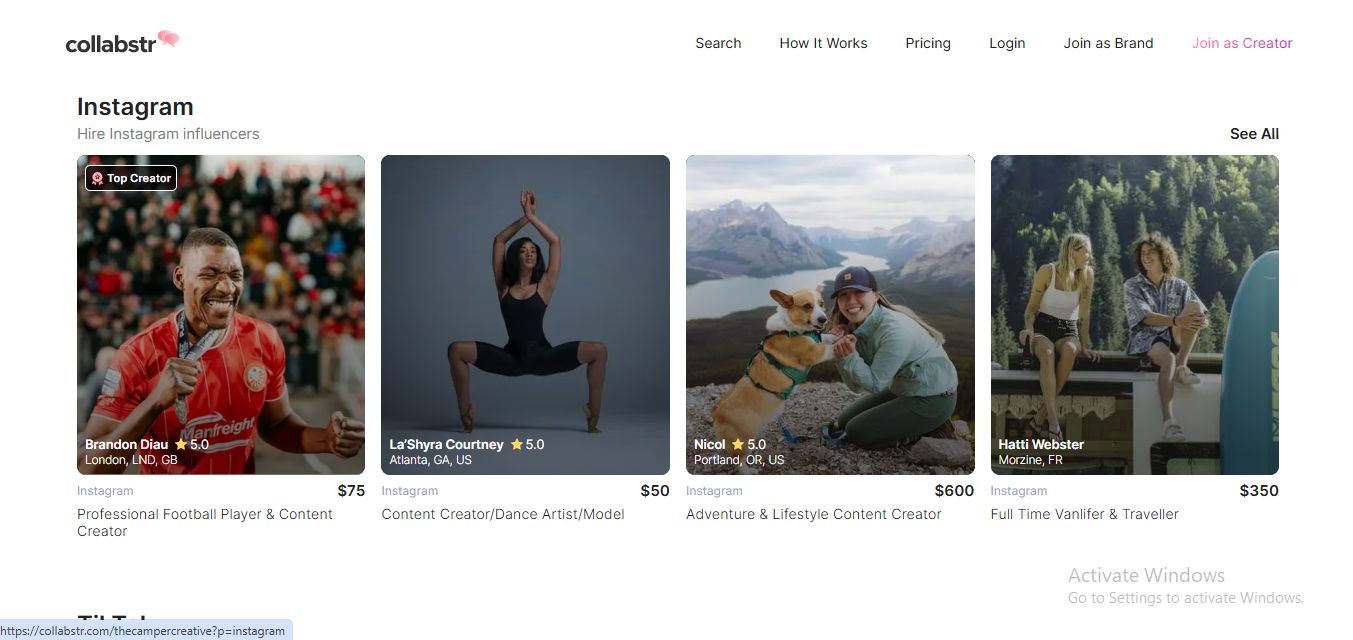
Overview:
Collabstr focuses on connecting brands with influencers for campaigns, but what sets it apart is its emphasis on short-term collaborations. If you’re looking for quick partnerships, this is the platform for you.
Pros:
-
Quick turnaround: If you’re in a pinch and need influencers fast, Collabstr can help you get set up quickly.
-
Variety of influencers: You can find influencers across various platforms like Instagram, TikTok, YouTube, and more.
-
Affordable for smaller brands: Prices are typically more transparent, and the platform offers options that won’t drain your wallet.
Cons:
-
Limited advanced features: For more complex campaign management, Collabstr may not offer as much as some competitors.
-
Influencer quality can vary: Since it’s focused on fast, short-term deals, you might not get the same high-quality influencers as other platforms.
Best for:
Brands looking for quick and affordable influencer partnerships without too much complexity.
10. Kolsquare
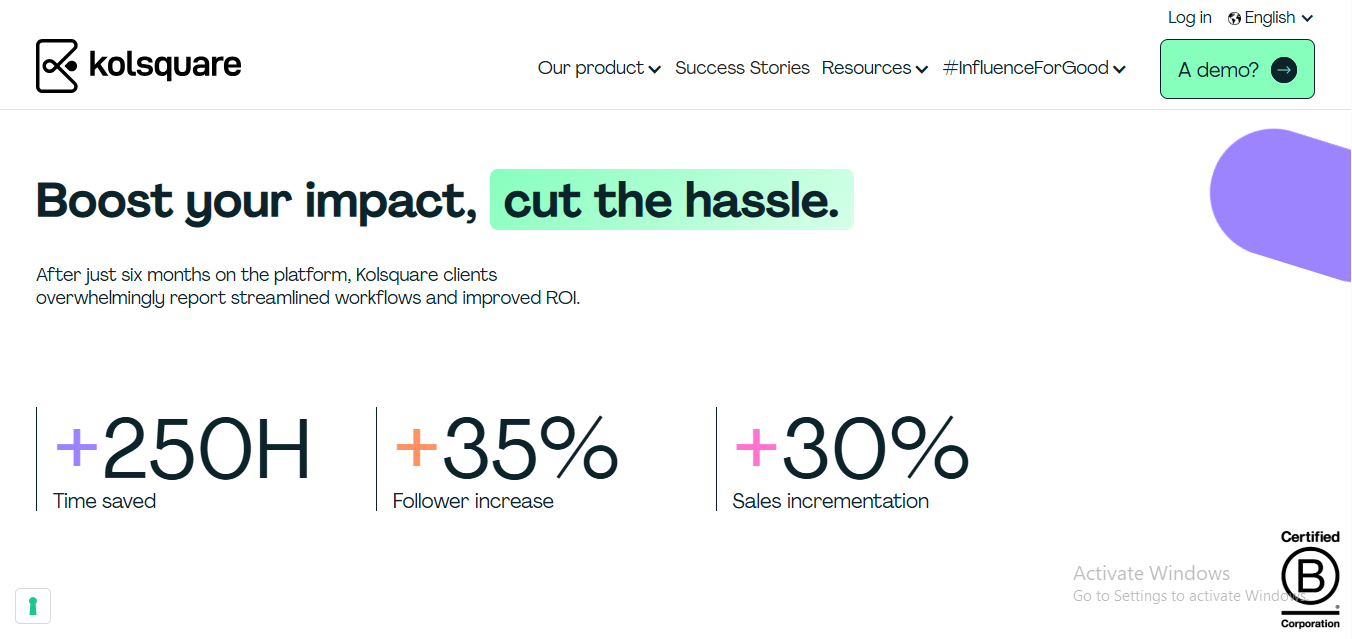
Overview:
Kolsquare is a European powerhouse when it comes to influencer marketing. It’s built with data-driven decisions in mind, helping brands target the right influencers based on performance metrics and analytics.
Pros:
-
Detailed analytics: If you’re all about the numbers, Kolsquare offers detailed insights into influencer performance, engagement rates, and more.
-
Global reach: Although it’s based in Europe, it’s got a great network of global influencers, which is perfect if you’re targeting multiple regions.
-
Advanced filters: The platform lets you fine-tune your influencer search with super-specific filters.
Cons:
-
Complex interface: The platform can be a bit overwhelming for newcomers due to its analytics-heavy interface.
-
Pricing transparency: You’ll need to reach out to get a clear sense of pricing, which can be inconvenient.
Best for:
Brands that want a data-heavy approach to influencer marketing and have the resources to dive deep into analytics.
11. Captiv8

Overview:
Captiv8 is all about helping you create influencer-driven campaigns that are authentic and scalable. It’s designed for brands that want more control and better reporting features.
Pros:
-
Real-time campaign tracking: You can monitor your campaigns in real-time, which is super helpful for tweaking things on the fly.
-
Great for large-scale campaigns: If you’re managing multiple influencers at once, Captiv8’s platform is built to handle the complexity.
-
Awesome integrations: Integrates well with social media platforms and e-commerce tools to track ROI.
Cons:
-
Pricey: Captiv8’s pricing is more suited for larger brands or enterprises, so smaller businesses might find it a little too much.
-
Steep learning curve: If you’re not super tech-savvy, it might take some time to get used to all the features.
Best for:
Brands running large campaigns who want deep insights and performance tracking.
12. Aspire.io
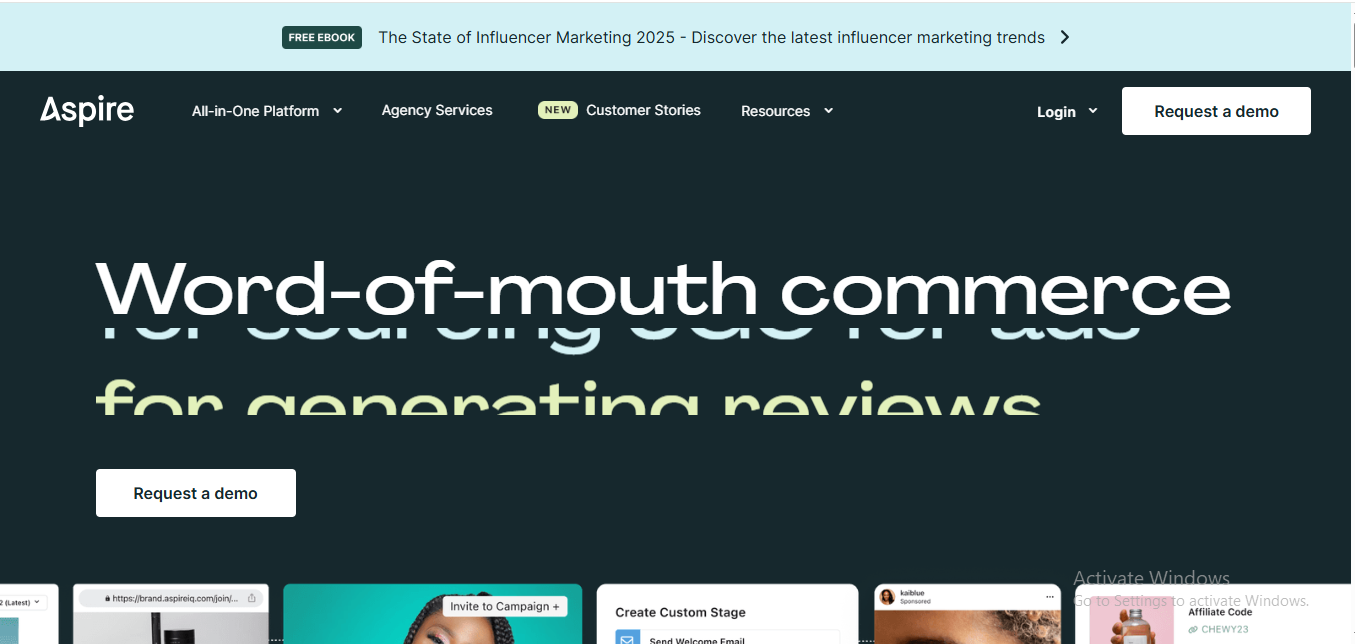
Overview:
Aspire.io is a platform that focuses on building long-term relationships with influencers. It’s all about automation, allowing you to scale your campaigns without a ton of manual work.
Pros:
-
Automation for days: The platform automates a lot of the influencer outreach, campaign management, and reporting, saving you time.
-
Long-term focus: Aspire.io is perfect for brands looking to create sustainable partnerships with influencers.
-
Customizable workflows: You can create workflows that suit your unique campaign needs, making the platform super adaptable.
Cons:
-
Limited influencer discovery: It’s not as comprehensive as some other platforms when it comes to finding influencers from niche markets.
-
Pricing is vague: They don’t have clear pricing options listed, so you’ll need to reach out for a quote, which can be annoying if you want quick info.
Best for:
Brands looking to automate and scale influencer campaigns with a long-term focus.
13. Tribe Group

Overview:
Tribe Group lets you run influencer marketing campaigns with a focus on user-generated content (UGC). It’s built for brands looking to harness the power of their community through authentic content.
Pros:
-
UGC focus: If you’re all about authenticity and community engagement, Tribe makes it easy to get influencers to create real, relatable content.
-
Great for small to medium businesses: The platform is ideal for smaller brands that want to keep things simple and budget-friendly.
Cons:
-
Influencer discovery is limited: The influencer pool isn’t as extensive as other platforms, so it might take a little longer to find the right fit.
-
Not as robust for large campaigns: If you need to manage a massive campaign with hundreds of influencers, Tribe might not be the best option.
Best for:
Smaller brands or those looking to work with influencers to create organic, user-generated content.
14. Braze
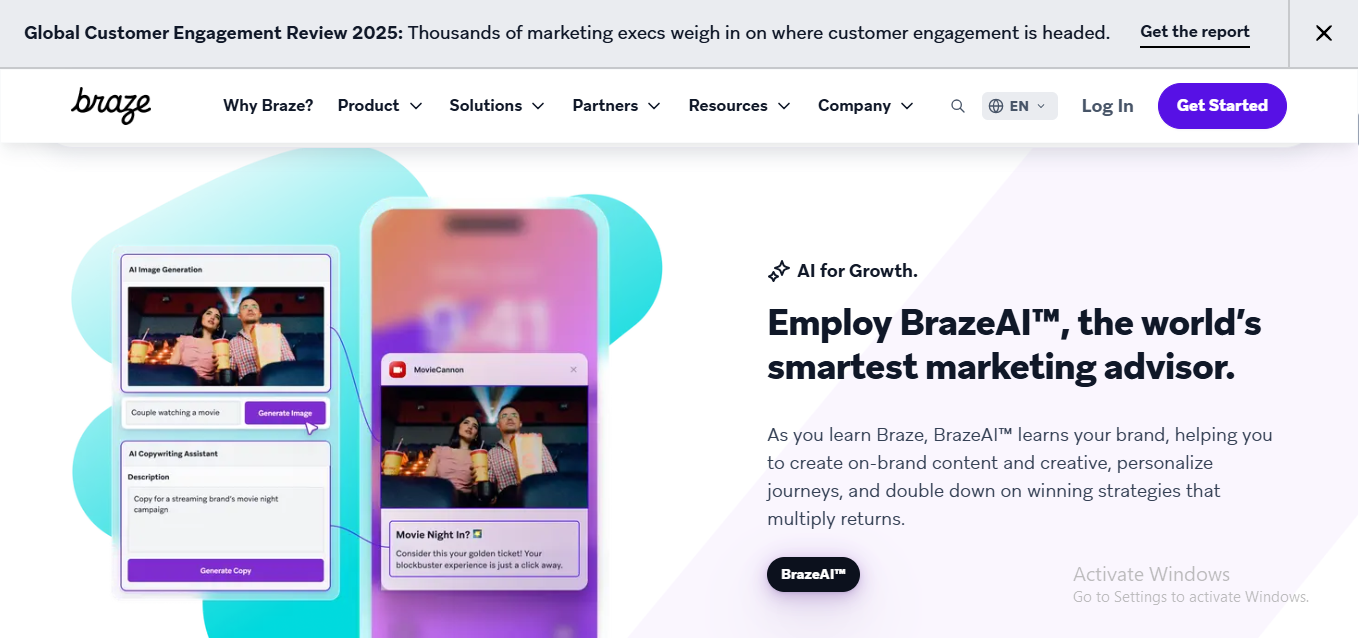
Overview:
Braze is a customer engagement platform that integrates influencer marketing into its robust ecosystem. It’s designed for brands that want to connect with their audience through personalized experiences, including influencer collaborations.
Pros:
-
Comprehensive engagement features: Braze goes beyond influencer marketing, offering a suite of tools to boost customer engagement through personalized messaging.
-
Great for larger brands: If you’re a big player with a ton of customer data, Braze helps you target your audience with precision.
Cons:
-
Complex setup: Braze is more of a full-service platform, which means there’s a learning curve involved.
-
Not specifically focused on influencers: While it integrates influencer marketing, Braze is more of a general engagement tool, so it may not be as robust as platforms dedicated solely to influencer marketing.
Best for:
Brands looking for an all-in-one engagement solution with influencer marketing as one component of a broader strategy.
15. IZEA

Overview:
IZEA is one of the OGs in the influencer marketing game. It’s a massive marketplace for influencers and brands, offering everything from influencer discovery to campaign management and performance analytics.
Pros:
-
Huge influencer pool: With thousands of influencers across various niches, you’ll find someone who fits your brand.
-
Custom campaigns: They allow you to tailor campaigns to fit your goals, which is perfect if you’re looking for flexibility.
-
Robust analytics: You can track everything, from engagement to ROI, giving you a clear picture of campaign performance.
Cons:
-
Pricey for smaller businesses: It’s definitely geared toward larger brands, so if you’re a small player, you might find it a bit much.
-
Somewhat clunky UI: While functional, the interface can feel a little outdated and not as smooth as other platforms.
Best for:
Large brands that want a fully-fledged influencer marketing platform with all the bells and whistles.
16. Insense.pro
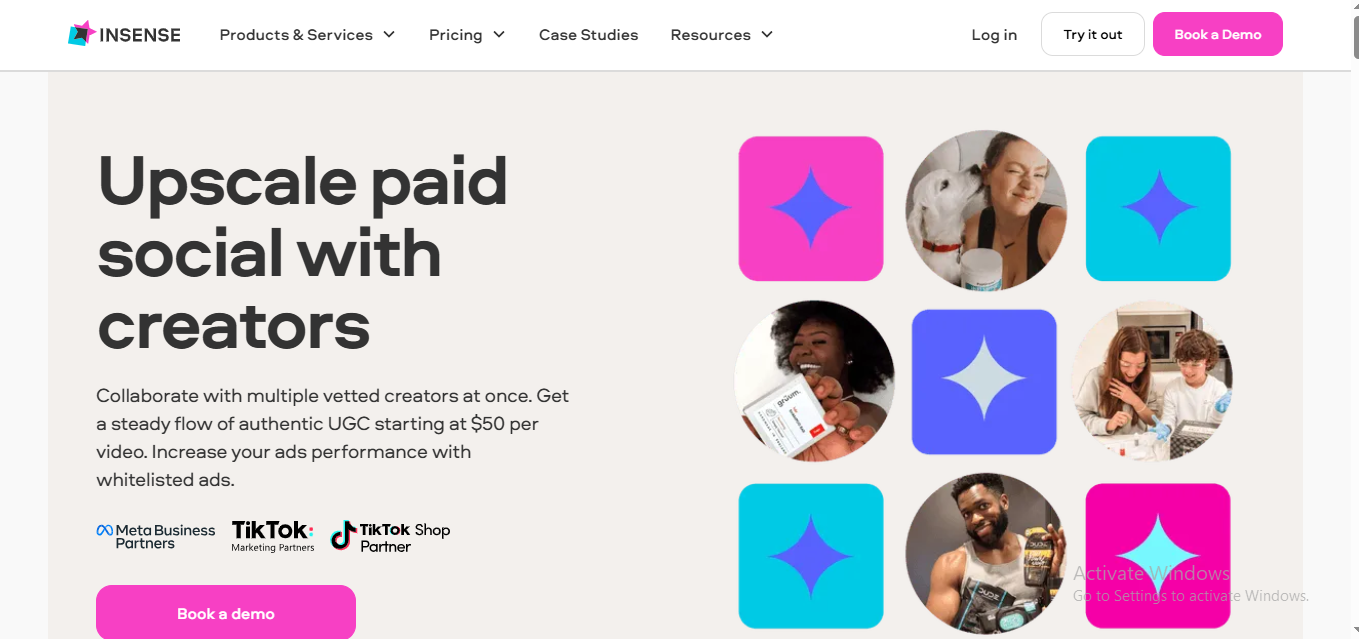
Overview:
Insense is all about creating authentic, user-generated content (UGC) with a focus on driving real results. The platform connects brands with creators who can generate content that feels organic and aligned with their audience.
Pros:
-
UGC-driven: Perfect for brands looking to build trust and authenticity with their audience.
-
Super easy to use: The platform is intuitive and easy to navigate, which makes campaign setup a breeze.
-
Diverse influencers: Insense offers influencers across a variety of social platforms like Instagram, TikTok, YouTube, and more.
Cons:
-
Smaller influencer pool: The database isn’t as extensive as some of the bigger platforms, so you may not find a ton of options for niche categories.
-
Limited campaign tools: If you need advanced campaign management tools, Insense may feel a bit basic for you.
Best for:
Brands that prioritize authenticity and want to work with creators to generate genuine content.
17. Influence.co

Overview:
Influence.co is a mix of influencer marketplace and community-building tool. It’s got a strong focus on connecting influencers with brands for long-term partnerships, making it ideal for companies looking to build lasting relationships.
Pros:
-
Long-term focus: It’s great for brands looking for consistent partnerships rather than one-off campaigns.
-
Influencer community: You can tap into a strong community of influencers, making it easier to find the perfect fit.
-
Analytics & tracking: They offer solid performance metrics to help you measure success.
Cons:
-
Limited campaign management features: It’s more of a discovery tool than a full-service platform, so if you want more advanced campaign management, this might not be the one.
-
Smaller database: The influencer pool is not as big as some competitors, which could be limiting for larger campaigns.
Best for:
Brands that want to build ongoing, meaningful relationships with influencers.
18. Influencer.com

Overview:
Influencer.com connects brands with top-tier influencers. It’s got a bit of a “high-end” feel and focuses on working with established creators to drive results for big-name brands.
Pros:
-
High-quality influencers: The influencers here are well-vetted, so you can trust that you’re working with top-tier talent.
-
Campaign management tools: They offer detailed campaign tracking and reporting, so you can see exactly how your campaigns are performing.
-
Great for large brands: If you’re a big company looking for a full-service influencer marketing solution, this is a good option.
Cons:
-
Expensive: The high-quality influencers come with a high price tag, so this might not be the best choice if you’re working with a smaller budget.
-
Less flexibility: The platform focuses more on big-budget campaigns, so if you’re looking for flexibility or smaller-scale projects, it might feel too rigid.
Best for:
Big brands that want to partner with top-tier influencers for high-end campaigns.
19. Later
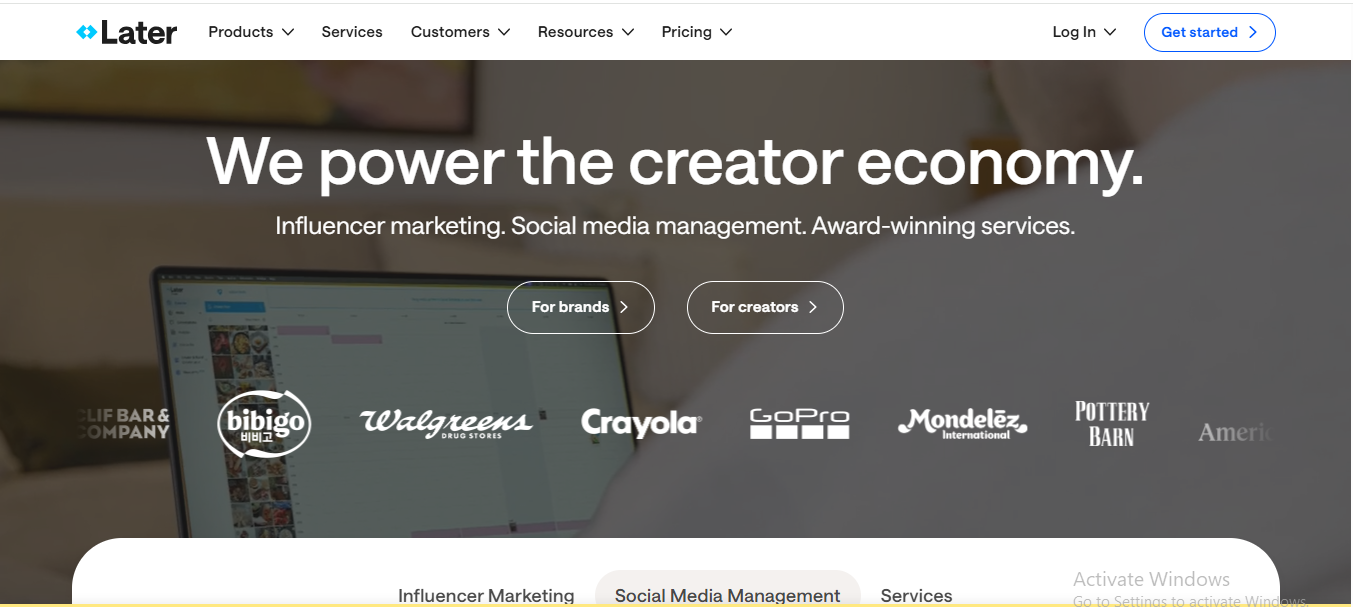
Overview:
Later isn’t just an influencer marketing platform—it’s also an Instagram scheduling tool. If you’re all about managing your social media content along with influencer collaborations, this could be your one-stop-shop.
Pros:
-
Social media management: Later lets you schedule content, manage campaigns, and work with influencers all in one place.
-
Easy-to-use design: The drag-and-drop interface makes scheduling and planning content super simple.
-
Instagram-centric: If Instagram is your main focus, Later makes it easy to track and manage influencer posts on the platform.
Cons:
-
Limited to Instagram: While Later is fantastic for Instagram, it doesn’t offer as much for other platforms like TikTok or YouTube.
-
Limited influencer features: Later’s influencer tools aren’t as advanced as some of the others on this list.
Best for:
Brands focused on Instagram marketing who want an all-in-one solution for content scheduling and influencer management.
20. Shout Agency

Overview:
Shout Agency is a full-service influencer marketing agency that focuses on helping brands grow through collaborations with the right influencers. The platform promises a hands-on approach, offering tailored campaigns based on your business goals.
Pros:
-
Custom campaigns: Shout Agency takes the time to understand your brand and create campaigns that are tailored to your needs.
-
Solid results: The platform focuses on measurable results, ensuring that your investment is paying off.
-
End-to-end service: From influencer discovery to campaign execution, Shout handles it all.
Cons:
-
Pricing: Being a full-service agency, the costs can add up, which might make it inaccessible for smaller brands.
-
Limited self-service options: You don’t get as much control over campaign management, which can be a bummer if you want to handle things on your own.
Best for:
Brands looking for a more hands-off experience with a full-service agency that handles everything for them.
21. Klear
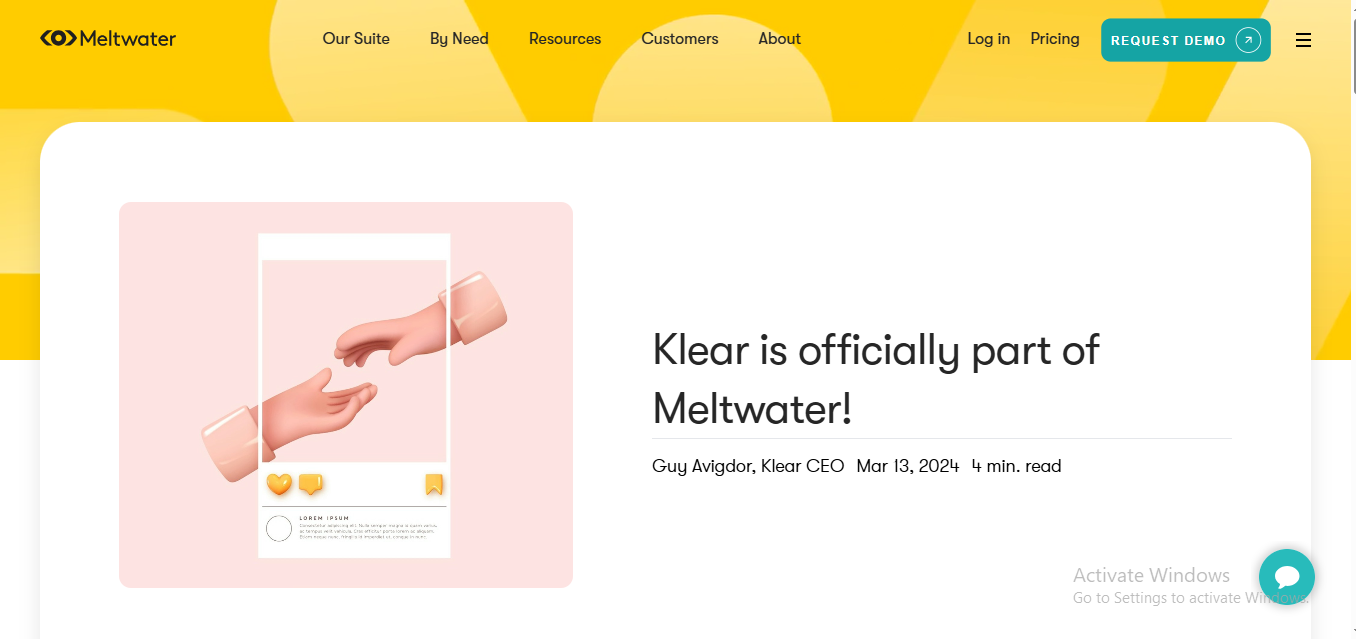
Overview:
Klear is an influencer marketing platform that’s known for its powerful analytics and influencer search engine. It’s perfect for brands that want a data-driven approach to influencer marketing, with the ability to track and measure campaign success in real-time.
Pros:
-
Data-driven: Klear’s analytics are top-notch, allowing you to track every detail of your campaign.
-
Advanced influencer search: You can search for influencers using very specific filters, which is perfect for finding the right fit for your brand.
-
Global influencer database: Klear’s influencer network is vast, so you’re not limited to just one region or market.
Cons:
-
Expensive: The platform’s pricing is on the higher end, so it might not be the best fit for small businesses or brands with limited budgets.
-
Complex setup: Klear’s features are powerful, but they can be overwhelming if you’re not used to data-heavy platforms.
Best for:
Data-driven brands that want to dive deep into campaign performance and influencer analytics.
22. Brandbassador
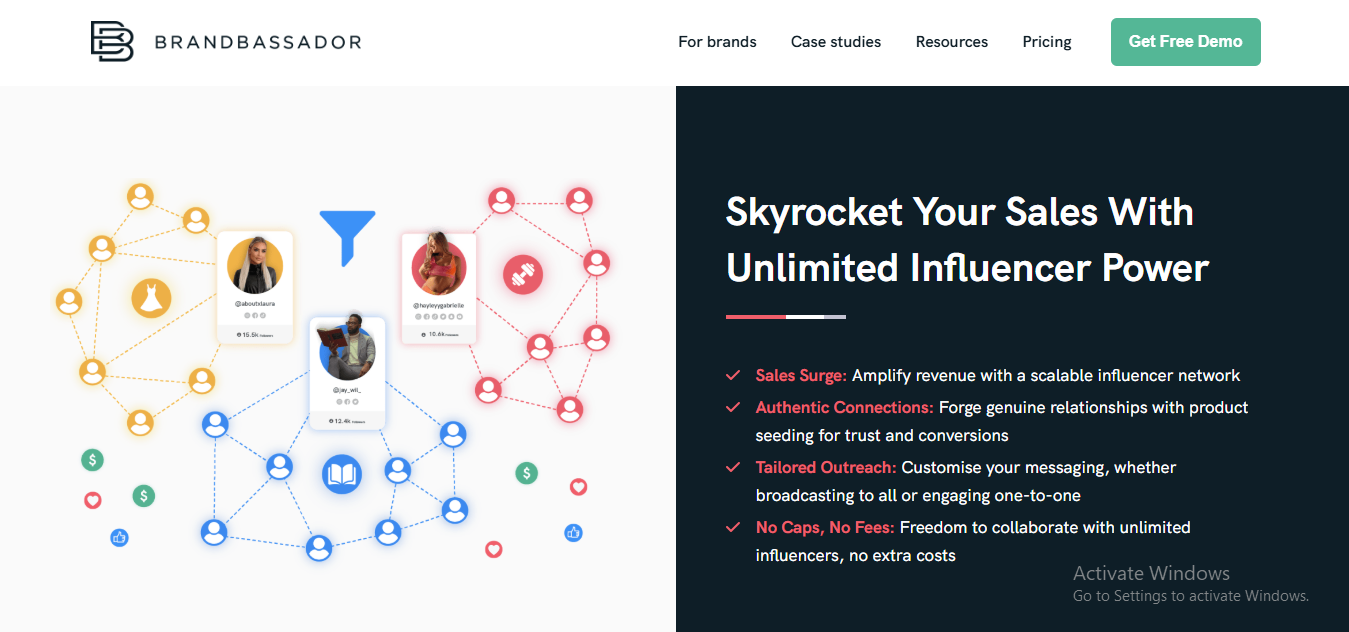
Overview:
Brandbassador is all about building your army of brand ambassadors. It’s perfect if you’re looking to turn loyal customers into influencers. The platform helps you run programs where users can earn rewards, and the best part? It automates the whole thing.
What I Liked:
-
Super easy to use.
-
Reward-based system keeps people engaged.
-
Lots of flexibility for campaigns.
What I Didn’t Like:
-
The pricing can be a little tricky for smaller brands.
-
The reporting could be more detailed for tracking ROI.
Pricing: Custom pricing depending on the scale of your brand.
23. Shoutugc

Overview:
Shoutugc is like a shout-out machine but with a twist. It’s all about user-generated content (UGC), helping brands scale by using their most engaged customers to create content. It’s perfect for anyone who wants to quickly build trust with a community.
What I Liked:
-
Focus on UGC is perfect for authenticity.
-
Makes content creation super easy.
-
Clean and simple dashboard.
What I Didn’t Like:
-
Limited influencer pool.
-
Doesn’t have as many advanced analytics as some others.
Pricing: Flexible pricing, usually based on the amount of content you need.
24. CreatorIQ
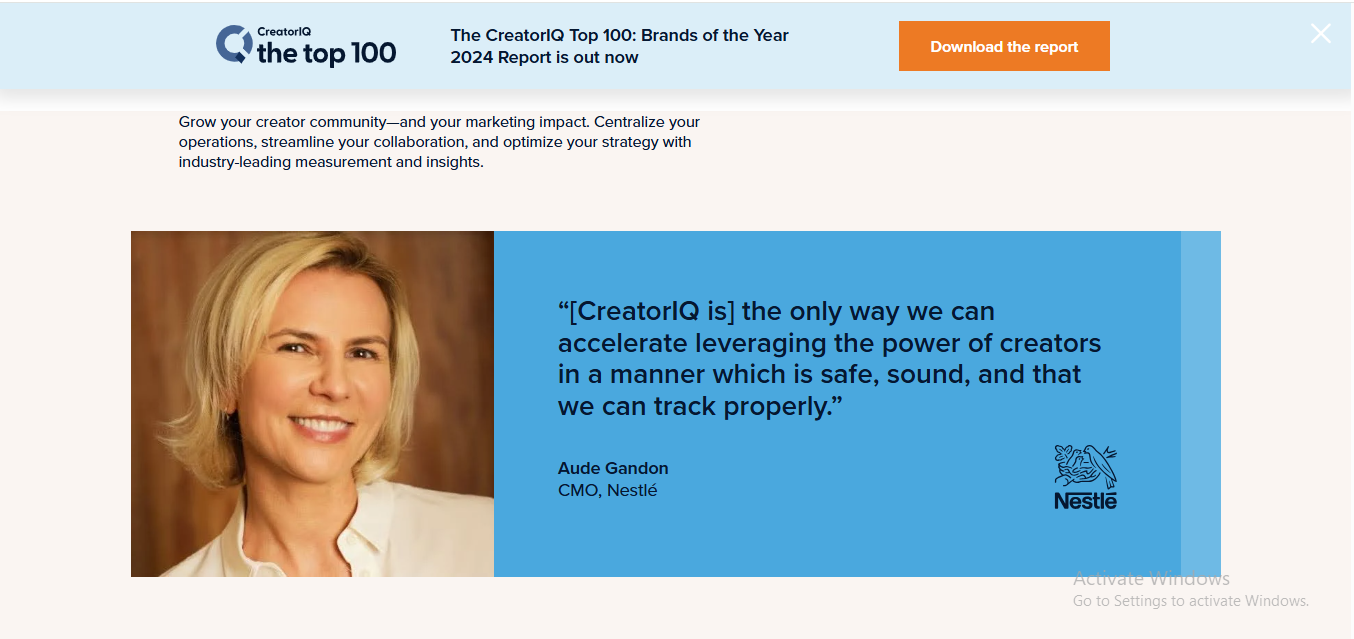
Overview:
CreatorIQ is basically the big daddy of influencer marketing platforms. It’s robust, and it’s designed for big brands and agencies who need to manage tons of campaigns and influencers at scale. Think of it as the Ferrari of influencer platforms.
What I Liked:
-
Extremely comprehensive analytics.
-
Great for managing large-scale campaigns.
-
Works with huge influencer networks.
What I Didn’t Like:
-
Definitely on the pricey side, so it might be too much for smaller brands.
-
The user interface can be overwhelming if you’re just starting.
Pricing: Custom pricing based on your needs, but expect it to be premium.
25. InfluencerMarketing.ai

Overview:
InfluencerMarketing.ai brings artificial intelligence into the influencer marketing game, helping you discover influencers using their algorithm. It’s a solid platform if you’re trying to take the guesswork out of influencer selection and campaign management.
What I Liked:
-
AI-driven influencer discovery—super accurate!
-
Great tools for finding influencers across various niches.
-
Solid campaign performance tracking.
What I Didn’t Like:
-
It’s new, so it doesn’t have the same long history of proven success as other platforms.
-
Pricing can be opaque and tough to figure out without talking to sales.
Pricing: Custom pricing based on your brand’s needs.
26. Traackr
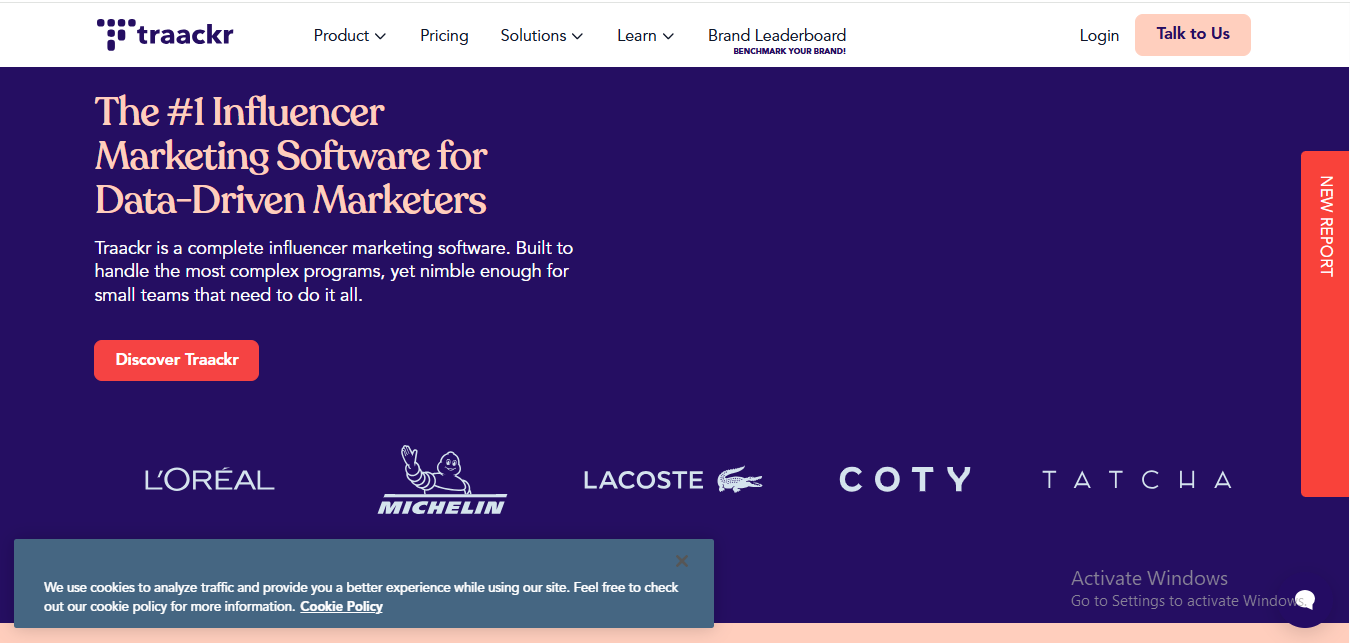
Overview:
Traackr is a global influencer marketing platform that helps you scale your campaigns. It’s all about finding the right influencers, managing relationships, and tracking results in real-time. It’s built for big campaigns and has some powerful analytics tools.
What I Liked:
-
Offers deep insights into influencer performance.
-
Great for large-scale international campaigns.
-
Can integrate with various other platforms and tools.
What I Didn’t Like:
-
It’s a little too complex for small businesses or newbies.
-
Can be on the expensive side for smaller budgets.
Pricing: Starts at higher tiers, so it’s better suited for large brands.
27. Upfluence

Overview:
Upfluence is a very user-friendly platform that gives you access to a large database of influencers. It’s designed for brands of all sizes and is a good middle-ground option for people who want high-quality results but don’t have a huge budget.
What I Liked:
-
Easy-to-use interface.
-
Huge database of influencers to choose from.
-
Good for both small and big brands.
What I Didn’t Like:
-
The platform could use more advanced automation features.
-
Reporting is basic and could be more insightful.
Pricing: Starts with affordable options, but custom pricing for larger needs.
28. Meltwater

Overview:
Meltwater is a beast in the media monitoring game, but it also has a solid influencer marketing solution. It’s mainly used for tracking brand mentions, social listening, and finding the right influencers to partner with based on sentiment and engagement.
What I Liked:
-
Best for media monitoring and tracking social mentions.
-
Great for global brands looking to track everything.
-
Integrates well with other marketing tools.
What I Didn’t Like:
-
It’s not as influencer-centric as other platforms.
-
A bit too enterprise-focused for smaller brands.
Pricing: Enterprise-level pricing.
29. The Social Cat
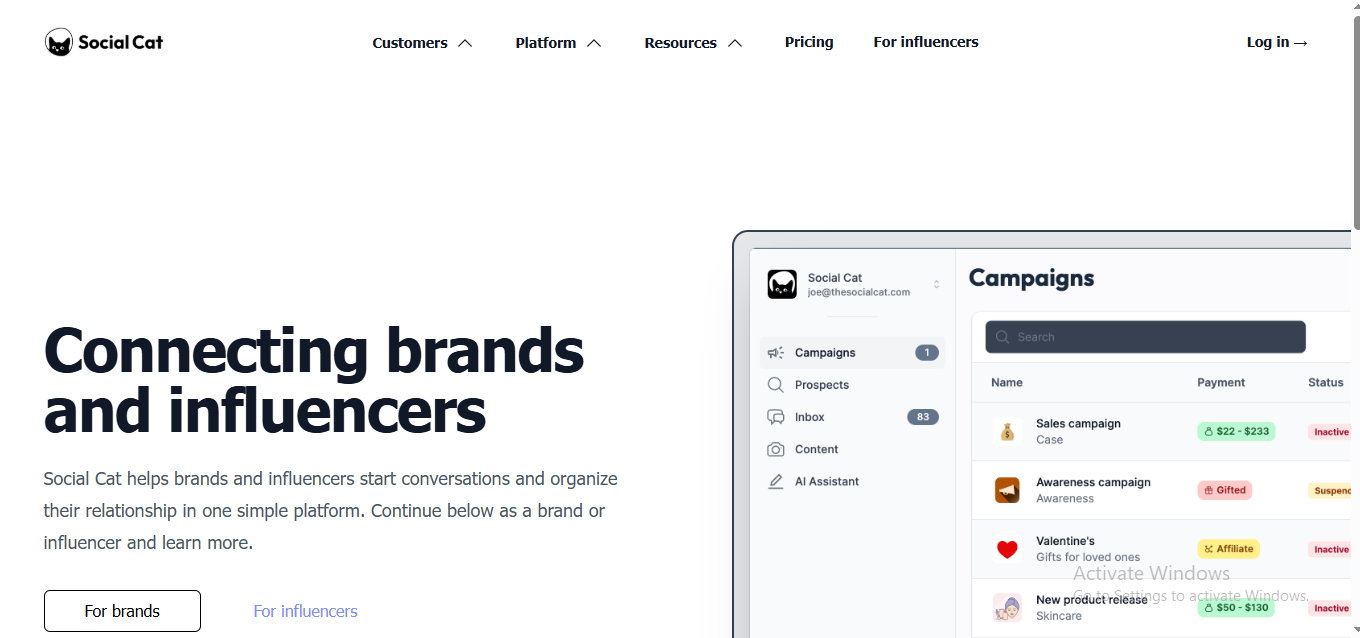
Overview:
The Social Cat is all about bringing influencers and brands together. It’s a nifty platform that simplifies influencer discovery, campaign tracking, and performance analytics. Perfect for those looking to run straightforward, smaller influencer campaigns without too much hassle.
What I Liked:
-
Super easy to use—no complex setup.
-
Transparent pricing with no hidden fees.
-
Great for micro-influencers if that’s the route you’re taking.
What I Didn’t Like:
-
Limited customization on influencer management.
-
Doesn’t have the advanced features that larger platforms offer, like in-depth reporting and analytics.
Pricing: Affordable pricing, making it a solid choice for smaller brands or those just dipping their toes into influencer marketing.
- Best LeadsGorilla Alternatives for 2025 - April 19, 2025
- Best Coldlytics Alternatives for 2025 - April 19, 2025
- Best Brevo Alternatives for 2025 - April 18, 2025

